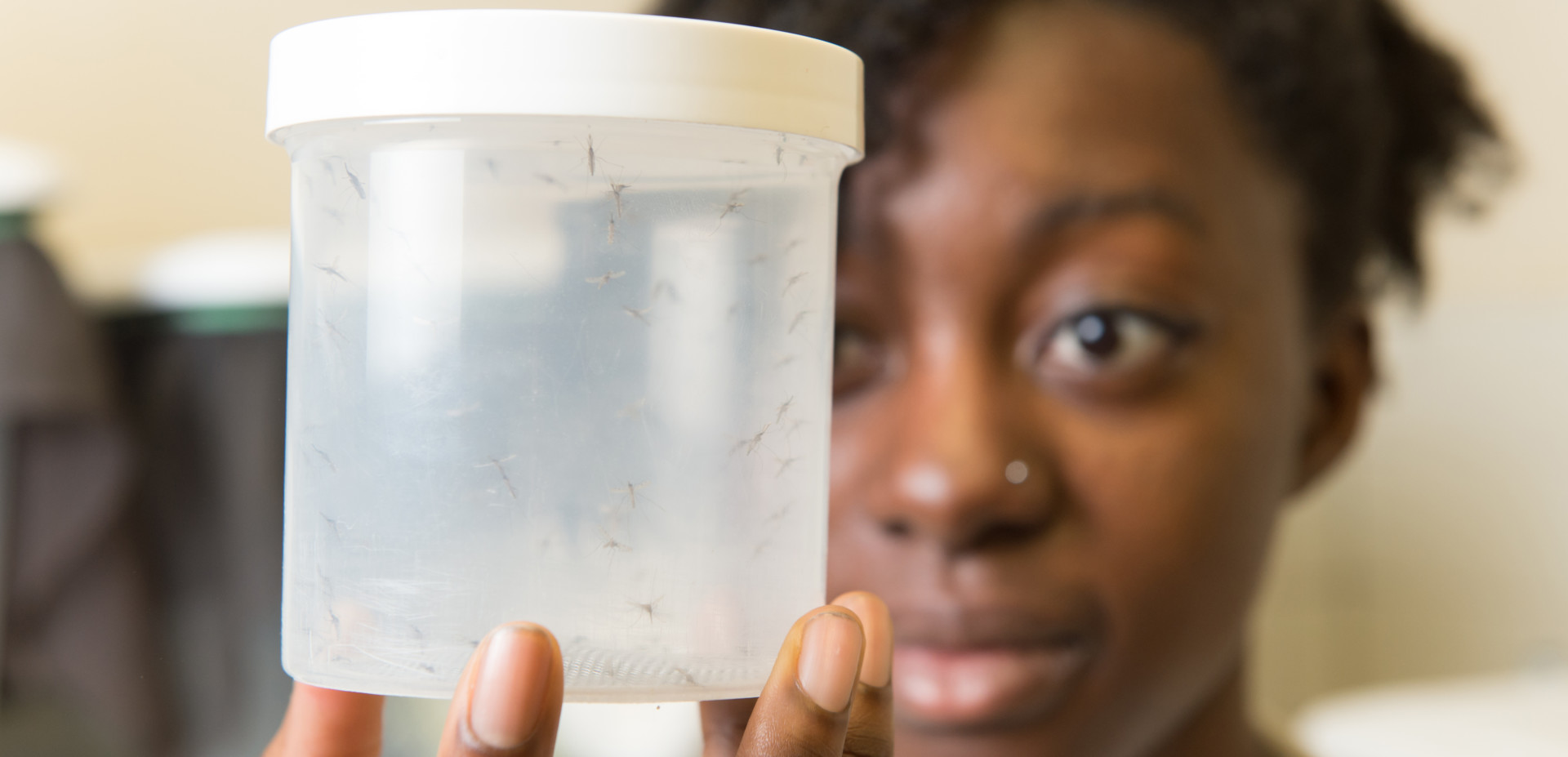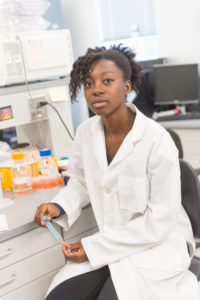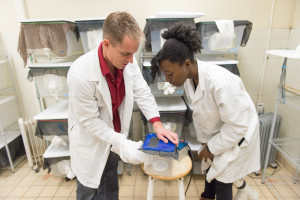
Jasmine Donkoh has an infectious enthusiasm about her budding career as a research scientist.
It’s no wonder this newly minted Colorado State alumna is buzzing with excitement: Just three months after earning her bachelor’s degree in microbiology, Donkoh is off to the National Institutes of Health for a prestigious post-baccalaureate fellowship investigating mosquito-borne malaria.
Donkoh’s parents are from Ghana, and the young African-American microbiologist grew up in a Denver suburb hoping to help solve global health problems. She became fascinated with mosquitoes as disease vectors after landing a job – and then launching her own research projects – in a Colorado State University laboratory that seeks new ways to halt malaria, a globally devastating disease.
Family philosophy: Contribute solutions

“My parents have always instilled, ‘Give back to your community,’ so from a young age, I was like, ‘I need to help people in Africa.’ It sounds like Miss America, but I’ve really been like, ‘This is what I have to do.’ Luckily, I’m really nerdy, so I got into science,” Donkoh said, while working at the CSU Arthropod-borne and Infectious Diseases Laboratory before leaving for her fellowship on the NIH campus near Washington, D.C.
“I feel really lucky and blessed,” Donkoh continued. “I came to CSU and found something I’m passionate about and fell in love with mosquito biology and malaria vaccine research. This is the coolest thing I’ve ever done.”
At NIH, Donkoh will work with top researchers in the National Institute of Allergy and Infectious Diseases – Laboratory of Malaria and Vector Research. She will examine the parasitic disease that is carried by mosquitos and each year sickens more than 200 million people in the world’s tropical and subtropical regions. Malaria kills an estimated 440,000 people annually; most are children in sub-Saharan Africa, according to the World Health Organization.
Landing a competitive fellowship at the NIH – the largest biomedical research agency in the world – is a high honor and a phenomenal opportunity to learn about and contribute to science that helps solve global health problems, said Dr. Sue VandeWoude, associate dean for research in the College of Veterinary Medicine and Biomedical Sciences, which is home to the microbiology undergraduate program. Such post-baccalaureate programs can jump-start graduate education and research careers.
The intrigue of vectors and pathogens
“I’m sad to see her go, but Jasmine is definitely on a great track,” agreed Brian Foy, a CSU associate professor who is among Donkoh’s mentors. “The NIH is research par excellence.”
Donkoh’s research focus began in Foy’s laboratory, where she worked as an undergraduate. He and his team investigate Anopheles mosquitoes and the parasites that cause malaria by triggering infection of red blood cells, which may spread through the body.

Recently, Foy has researched the effectiveness of proactively giving ivermectin, a common antiparasitic drug, to people at risk of contracting malaria. He hopes mosquitoes that ferry malaria parasites will be poisoned when they alight on people and suck up pretreated blood meals. The novel approach is meant to stop malaria “at the bite,” Foy explains.
Donkoh said she was bitten by the research bug when she learned about the interplay among vector, blood meal and pathogen – and began searching at a cellular level for new ways to break the cycle of infectious disease. Now she converses excitedly about “voltage-gated sodium channels.”
Her abilities were clear last spring, when Donkoh received highest honors during the university’s 2016 Celebrate Undergraduate Research and Creativity Showcase for a presentation of her research, titled “Mosquitocidal Properties of IgG Targeting the Voltage-Gated Sodium Channel in Malaria Vector Anopheles gambiae.”
She also won the award for overall excellence at CSU’s Multicultural Undergraduate Research, Art, and Leadership Symposium.
Her love of science took hold with help from supportive faculty members, fellow students and lab employees.
“I realized, ‘I wanna do this.’ It’s really easy to fall in love with science when everyone around you is so great,” Donkoh said.

Jasmine Donkoh is one of many students in the College of Veterinary Medicine and Biomedical Sciences who received scholarship support as an undergraduate. The college awards more than 300 scholarships totaling more than $1 million annually. You can help by contributing during the current CSU “State Your Purpose” $1 billion fund-raising campaign. Click here for information.